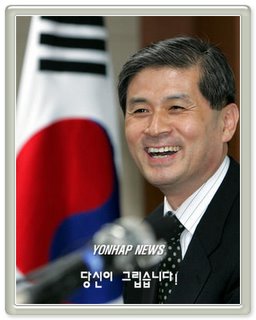Interview with Time Asia

Monday, Dec. 05, 2005
10 Questions For Dr. Hwang Woo Suk
TIME talks to the controversial South Korean cloning pioneer
South Korean cloning pioneer Hwang Woo Suk admitted last month that his lab accepted human egg donations from two of its own researchers, a violation of scientific ethics. Yet Hwang's televised apology stirred South Koreans and prompted many women to volunteer their own eggs. Hwang tells TIME's Anthony Spaeth via e-mail that his research must continue.
1. You have been very candid about your mistakes: that your team accepted eggs from two of its own members, and also paid volunteers for eggs. How big an ethical lapse is this? They donated their eggs voluntarily without any coercion and their direct expenses were paid.
2.If you admitted the truth at the time an article in Nature was published in May 2004, would this controversy have disappeared? Was the cover-up a more serious mistake than the accepting of the eggs? It was not a cover-up. At that time, the donors pleaded in [the] sincerest way that I must not disclose their role for the sake of their privacy. It was very agonizing for me. After serious consideration, I finally chose to protect my researchers' privacy. This, perhaps, was a cultural consideration: in Korea, disclosure of oocyte [egg] donation is a serious matter that could have an important impact on a woman's life.
3. Do you believe the two junior lab workers felt pressure to donate their eggs?
They donated eggs completely voluntarily.
4.The one part of your story that people have trouble believing is that you didn't know of the donations by your research assistants until the Nature article appeared. Is this true? How is it possible that the head of the lab was not aware of the sources of the eggs?
It is true. I am not in the position to be that aware of the sources of the eggs. I am physically and structurally barred from any direct access to the oocyte collection process according to Seoul National University's Institutional Review Board's guidelines. What we receive is oocyte, and not donor, information.
5. Some South Koreans have seen this controversy as a plot by the outside world to keep South Korea from getting ahead in biotechnology. What do you think?
I don't see it that way.
6.Do you believe the controversy over your lab's procedures could have a lasting, negative effect for the international reputation of South Korean science?
The fact that I had chosen to protect my researchers does not excuse me from having withheld the information. However, please know that it never was my deliberate intention.What is clear now is that research like this requires transcending all cultural considerations.
7.Will prominent international scientists be less willing to collaborate with South Korean scientists? Currently, many foreign researchers are visiting my lab and learning the technology. We are [still] planning to educate researchers worldwide. We would like to distribute our technology to the world.
8.The greater issue plaguing stem-cell research is the moral one: should scientists experiment with cloned human embryos. Did this controversy deepen public mistrust of stem-cell research in general? The purpose of therapeutic cloning is not to clone human beings. Therapeutic cloning is used to create cells for curing patients with degenerative diseases without immune system rejection. I believe that the public is in favor of therapeutic cloning.
9. How important is stem-cell research for humankind?
Stem-cell therapy is the only way to treat patients with degenerative disease.
10. Has this turn of events discouraged you from forging ahead with your revolutionary work?
I will continue to do my work.

0 Comments:
Post a Comment
<< Home